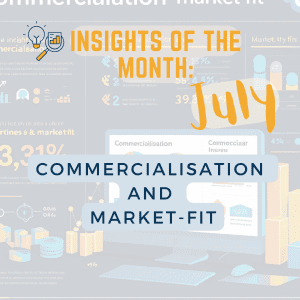As we approach the final stretch of 2025, UK SMEs face a complex economic landscape marked by cautious consumer behaviour, regulatory pressures, and shifting policy priorities.
This UK SME market analysis explores the latest data on consumer confidence, spending patterns, and business forecasts for August through December.
Whether you’re a microbusiness owner or a policymaker, understanding these trends is critical to navigating the rest of the year successfully.
1. Current State of UK Consumer Confidence
Consumer sentiment in mid-2025 has been marked by modest stability, though underlying concerns remain.

According to recent data, the GfK Consumer Confidence Index stood at -23 in April 2025, its lowest since November 2023.
While there were slight improvements by May, overall confidence remains fragile.
In August 2024, consumer confidence was already showing signs of stagnation, with reports noting that UK households remained “pessimistic about the trajectory of the economy”. Fast forward to 2025, and while the index hasn’t collapsed further, it hasn’t rebounded meaningfully either.
This persistent caution is reflected in actual spending patterns, which have seen little growth over the past year.
2. Spending Behaviour: A Tale of Two Years
August–December 2024: Flatlining Consumption
In late 2024, UK consumers largely held back their spending. Card spending growth came to a standstill in December 2024, rising just 0.0% year-on-year, despite an inflation rate of 3.5% according to CPIH. This meant that real household consumption power was declining, and people were prioritising essentials over discretionary purchases.
August–December 2025: Slow Uptick Expected
Fast forward to 2025, and while conditions haven’t dramatically improved, there are signals of resilience. The PwC Spring 2025 Consumer Sentiment Survey found that 70% of consumers planned to reduce spending over the next few months, but this was accompanied by consistent, smaller-scale transactions rather than outright cutbacks.
Spending on non-essential items like travel, dining, and entertainment has shown some durability, with non-essential spending confidence holding steady at 56% in mid-2025. This suggests that while big-ticket purchases may be off the table, consumers are still engaging in modest discretionary spending.
Looking ahead, growth in spending is expected to be low but positive, assuming no new shocks to the system such as energy price spikes or interest rate hikes.
3. Challenges Facing UK Microbusinesses
Despite the marginal improvement in consumer sentiment, microbusinesses continue to face significant headwinds:
Regulatory Burden: Small firms often lack the resources to comply with complex regulations, which can stifle innovation and growth. Reports from industry bodies indicate that regulatory compliance remains one of the top obstacles for UK SMEs.
Access to Finance: The availability of external funding continues to be a major concern. Although the government launched an open call for evidence in March 2025 regarding SME finance challenges, many microbusinesses still struggle to secure the loans or investments necessary for scaling up.
Productivity Gaps: Long-standing productivity issues persist, especially among smaller firms. While earlier initiatives aimed at improving leadership and management skills in SMEs date back to 2019, more targeted support will be needed to bridge the gap between large corporations and micro-enterprises.
4. Political and Policy Uncertainty
There are growing concerns that the UK government may struggle to maintain a consistent economic strategy. Recent debates in the House of Lords, including one led by Lord Sugar in June 2025, highlighted worries about how policies like capital gains tax proposals could impact SMEs. These discussions suggest that the business community sees room for improvement in how policy is communicated and implemented.
This perceived instability – or being “a little shaken”? – can erode trust and lead to conservative decision-making among entrepreneurs and investors alike.
Northstar Consulting Forecast: What to Expect
Consumer Confidence: We expect consumer confidence to remain stable or show minor improvements, barring new economic shocks. However, the index is unlikely to reach pre-pandemic levels before the end of 2025.
Spending Growth: Spending growth is projected to stay below 1% year-on-year, driven mainly by essential goods and modest discretionary purchases. Consumers will likely continue favouring value-for-money options and delaying larger investments.
Business Environment: If the government introduces meaningful reforms to reduce red tape and improve access to finance, it could create a more favourable environment for micro businesses. There is potential for increased formalisation of informal enterprises if these reforms gain traction.
Comparison with 2024: Compared to 2024, when spending flatlined and confidence dipped sharply, 2025 should see slight improvements. However, real-term purchasing power may still be under pressure due to inflation outpacing wage growth.
Recommendations for Businesses
For micro businesses and marketers looking to navigate this environment, here are several actionable insights:
Focus on Value Proposition: With consumers tightening budgets, emphasise affordability, quality, and unique selling points in your marketing messaging.
Optimise Digital Presence: Digital channels remain crucial. Take into account that some of your traffic will be cannibalised by AI. Yet, content remains an important part of your strategy, and even being picked out and referenced by AI is a great win.
Prepare for Regulatory Changes: Stay informed about upcoming policy changes, particularly around tax, employment law, and financial support programs. Regularly reviewing your compliance posture can prevent costly missteps.
Monitor Macroeconomic Indicators: Track inflation, interest rates, and consumer sentiment closely. Tools like the Conference Board’s US Consumer Confidence Report can provide comparative insights and early warning signs.
Key takeaways
The UK market in the second half of 2025 presents a picture of slow recovery and cautious optimism.
While consumer confidence and spending aren’t booming, they are showing signs of resilience. For microbusinesses, the path forward will depend heavily on navigating regulatory challenges, accessing finance, and aligning offerings with shifting consumer priorities.
Businesses that focus on delivering clear value, leveraging digital tools effectively, and staying agile in response to policy and market changes will be best positioned to thrive during this transitional period.
Find out how NorthStar Consulting can help your business thrive and grow!

Every Monday & Wednesday for the month of July, we break down commercialisation trends and market-fit strategies for niche brands.
Want the full analysis?
Sign up to our emails or follow us on Substack where we will send longer versions of our analyses!




